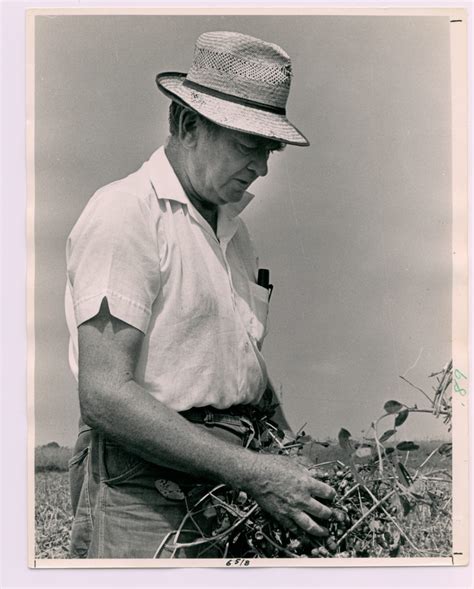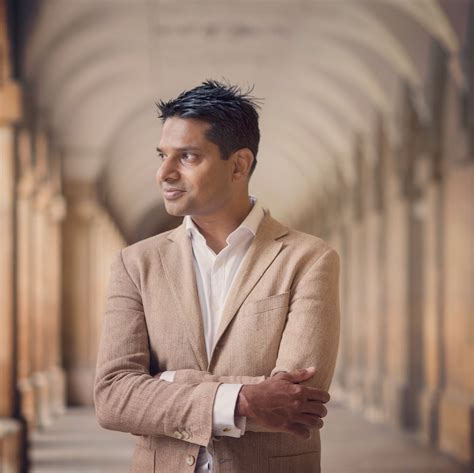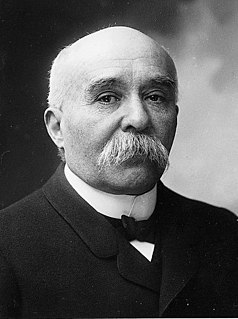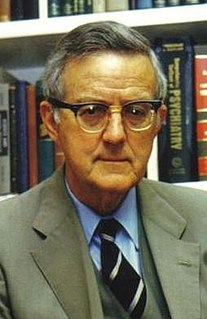Top 463 Committing Quotes & Sayings - Page 8
Explore popular Committing quotes.
Last updated on April 21, 2025.
No-strings relationships have helped cure me of love addiction. All my life I've been in long-term monogamous relationships. I had to break that pattern by not allowing myself to have a relationship for a year, stopping myself from committing to men. I haven't been celibate. I've had lots of dates and lots of sex, but I haven't been pushing to turn a date into a relationship. This has been a huge thing for me.
When I think of Britain, I don't think of these lofty ideals which once held sway like the stoic upper lip. I think of girls on a Saturday night outside kebab shops stabbing each other with stiletto heels or guys smashing glasses into someone's face. I think of shows like Big Brother which celebrate people's discomfort and anguish or kids committing these terrifying happy slapping acts of brutality to each other at the drop of a hat.
A belief in moral absolutes should always make us more, not less, critical of both sides in any conflict. This doesn't mean that both sides are equally wrong; it means that since we all fall short of moral perfection, even the side whose cause is truly righteous may commit terrible acts of violence in defense of that cause -- and, worse, may feel quite justified in committing them. That is the difference between being righteous and being self-righteous. Moral standards are absolute; but human fidelity to them is always relative.
I'm not a believer in predetermined fates, being rewarded for one's efforts. I'm not a believer in karma. The reason why I try to be a good person is because I think it's the right thing to do. If I commit fewer bad acts there will be fewer bad acts, maybe other people will join in committing fewer bad acts, and in time there will be fewer and fewer of them.
We are living in uncertain times. In a world where peace seems to be in short supply, I feel like the world is desperate to see an example of "peace that passes understanding." When someone goes "all in" for God, committing their whole life to Him, peace is one of the gifts we are promised. Someone who is all in for God can take to heart that even though we will have trouble in this world, our lives are in the hands of the one who has overcome this world. When we've been filled with God's peace, only then can we turn around and become instruments of His peace to a hurting world.
The prevailing idea seems to be, that I come to God and ask Him for something that I want, and that I expect Him to give me that which I have asked. But this is a most dishonouring and degrading conception. The popular belief reduces God to a servant, our servant: doing our bidding, performing our pleasure, granting our desires. No, prayer is a coming to God, telling Him my need, committing my way unto the Lord, and leaving Him to deal with it as seemeth Him best.
If somebody murders somewhere, I have a part in it. Even if I am a sleeper - I was sleeping, I don´t know about the man, I will never hear about him - and somebody somewhere, in the Himalayas, commits a murder, if we are not individuals I have a part in it, I am also responsible. It is not so easy to throw the responsibility: "I am not committing a murder, I am a saint." No saint is a saint because every sinner is implied in him.
Twenty-eight to 31 is the tough period. You have to be really careful because it's so cataclysmic, so life-altering. People do really dramatic things like get married, or they'll get divorced. Your chances of committing suicide go way up. It's basically psychic death. You see the signs of it around 27, and you're still on the out-end of it around 31. Everyone I've talked to who's gone through that and come out the other side walks out of it like, "MY LIFE IS GREAT".
In the camp, this meant committing my verse-many thousands of lines-to memory. To help me with this I improvised decimal counting beads and, in transit prisons, broke up matchsticks and used the fragments as tallies. As I approached the end of my sentences I grew more confident of my powers of memory, and began writing down and memorizing prose-dialogue at first, but then, bit by bit, whole densely written passages. My memory found room for them! It worked. But more and more of my time-in the end as much as one week every month-went into the regular repetition of all I had memorized.
Life is about committing ourselves on a daily basis to the best in us. Freedom is a state of mind. Freedom is an attitude. Freedom is a spirit. You may be behind bars, but you still have the capacity to be free. I've visited some people behind bars who are freer than Negroes I see running around every day. Being in jail, or poor, or uneducated doesn't determine how free you can be. There are really only two types of people. Either you're running scared or you're running free. I choose to run free, and you can, too, no matter what your circumstances in life.
If only it were all so simple! If only there were evil people somewhere insidiously committing evil deeds, and it were necessary only to separate them from the rest of us and destroy them. But the line dividing good and evil cuts through the heart of every human being. And who is willing to destroy a piece of his own heart?
Kurt Cobain OD'd on heroin before committing suicide, but he also OD'd on fame. Cobain was like Basquiat: They both wanted to be famous, and were brilliant enough to make it happen. But then what? Drug addicts kill themselves trying to get that feeling they got from their first high, looking for an experience they'll never get again. In his suicide note, Cobain asked himself, "Why don't you just enjoy it?" and then answered, "I don't know!" It's amazing how much of a mindfuck success can be.
Murtagh was right about women. Sassenach, I risked my life for ye, committing theft, arson, assault, and murder into the bargain. In return for which ye call me names, insult my manhood, kick me in the ballocks and claw my face. Then I beat you half to death and tell ye all the most humiliating things have ever happened to me, and ye say ye love me." He laid his head on his knees and laughed some more. Finally he rose and held out a hand to me, wiping his eyes with the other. "You're no verra sensible, Sassenach, but I like ye fine. Let's go.
But though such is our character (Oh. why should I speak of things unfit to be uttered?), the things said of us are an example of the proverb, 'The harlot reproves the chaste.' For those who have set up a market for fornication and established infamous resorts for the young for every kind of vile pleasure - who do not abstain even from males, males with males committing shocking abominations, outraging all the noblest and comeliest bodies in all sorts of ways, so dishonoring the fair workmanship of God.
In the short term, it would not have made it possible to resume relations, because in the Chinese mind, the humiliation of China started with the annexation of Taiwan by Japan. If the United States had suddenly declared Taiwan as a separate state - for which we would have had no support among other nations - the consequences would have been giving up our relationship with China and committing ourselves to a long-term conflict with China.
You must be really bad, because it is a puzzle. Creating anything is hard. It’s a cliché thing to say, but every time you start a job, you just don’t know anything. I mean, I can break something down, but ultimately I don’t know anything when I start work on a new movie. You start stabbing out, and you make a mistake, and it’s not right, and then you try again and again. The key is you have to commit. And that’s hard because you have to find what it is you are committing to.
Wars are generally fought for material things; they're not fought over ideals. After we get into them, we are told we are fighting for ideals. We are fighting for oil and tin and rubber and markets, and as long as we insist on a standard of life that is so high above all the rest of the world, we're going to have to pay for our standard of living with a lot of blood. I think we ought to re-examine the fact that Jesus was a pauper, and we should be committing ourselves to a very humble, simple way of life.
Kaplan can't understand trivialities. The triviality here is that nobody except the ultra right-wing jingoists like Kaplan are comparing atrocities by various countries. What honest people are saying seems to be incomprehensible: that we should keep to the elementary moral level of the gospels. We should pay attention to our own crimes and stop committing them. This would be true even if we were killing one person, OK? And it's even more true when we're killing millions of people.
If you give the government the right to determine the consumption of the human body, to determine whether one should smoke or not smoke, drink or not drink, there is no good reply you can give to people who say, More important than the body is the mind and the soul, and man hurts himself much more by reading bad books, by listening to bad music and looking at bad movies. Therefore it is the duty of the government to prevent people from committing those faults. And, as you know, for many hundreds of years governments and authorities velieved that it was their duty.
What blinds us, or makes historical progress very difficult, is our lack of awareness that our beliefs have grown obsolete and should be put aside.... This is I think much of the problem of the modern dilemma: Direct experience has been discounted, and in its place all kinds of belief systems have been erected.... If you believe something, you are automatically precluded from believing its opposite; which means that a degree of your human freedom has been forfeited in the act of committing yourself to this belief.
According to the Buddha, the failure to recognize the illusion of the self is the source of all ignorance and unhappiness. It is only by renouncing the self, that is, by dropping his ego defences and committing metaphorical suicide, that a person can open up to different modes of being and relating and thereby transform himself into a pure essence of humanity. In so doing, he becomes free to recast himself as a much more joyful and productive person, and attains the only species of transcendence and immortality that is open to man.
Student loans are destroying the imagination of youth. If there’s a way of a society committing mass suicide, what better way than to take all the youngest, most energetic, creative, joyous people in your society and saddle them with, like $50,000 of debt so they have to be slaves? There goes your music. There goes your culture. There goes everything new that would pop out. And in a way, this is what’s happened to our society. We’re a society that has lost any ability to incorporate the interesting, creative and eccentric people.
One morning, in cool blood, I slipped a noose about its neck and hung it to the limb of a tree; — hung it with the tears streaming from my eyes, and with the bitterest remorse at my heart; — hung it because I knew that it had loved me, and because I felt it had given me no reason of offence; — hung it because I knew that in so doing I was committing a sin — a deadly sin that would so jeopardize my immortal soul as to place it — if such a thing were possible — even beyond the reach of the infinite mercy of the Most Merciful and Most Terrible God.
To create guilt, all that you need is a very simple thing: start calling mistakes, errors - sins. They are simply mistakes, human. Now, if somebody commits a mistake in mathematics - two plus two, and he concludes it makes five - you don`t say he has committed a sin. He is unalert, he is not paying attention to what he is doing. He is unprepared, he has not done his homework. He is certainly committing a mistake, but a mistake is not a sin. It can be corrected. A mistake does not make him feel guilty. At the most it makes him feel foolish.
Our ignorance of the cosmos is too vast to commit to atheism, and yet we know too much to commit to a particular religion. A third position, agnosticism, is often an uninteresting stance in which a person simply questions whether his traditional religious story (say, a man with a beard on a cloud) is true or not true. But with Possibilianism I’m hoping to define a new position - one that emphasizes the exploration of new, unconsidered possibilities. Possibilianism is comfortable holding multiple ideas in mind; it is not interested in committing to any particular story.
The story of Sherlock Holmes, on the surface, is about detection, but in reality, it's about the best of two men who save each other - a lost, washed-up war hero and a man who could end up committing murders instead of solving them. They come together. They become this perfect unit. They become the best friendship ever, and they become heroes. That's what we fall in love with, not Sherlock on his own. No one can love that man on his own, but Sherlock Holmes and Dr. Watson - the best friends ever.
Yet I am not more sure that my soul lives, than I am that perverseness is one of the primitive impulses of the human heart - one of the indivisible primary faculties, or sentiments, which give direction to the character of Man. Who has not, a hundred times, found himself committing a vile or a silly action, for no other reason than because he knows he should not? Have we not a perpetual inclination, in the teeth of our best judgment, to violate that which is Law, merely because we understand it to be such?
I think in the inception and creation of the characters, improv was the most important part for me, because I wanted to feel at home in those characters. I wanted to feel like I could commit to them. And so much of improv is saying yes and committing, so I think that's where the improv came in. Even if I'm saying yes to the X across the room from me, or the tennis ball on a stick, I have to stay alive.
The citizens of a city are not guilty of the crimes committed in their city; but they are guilty as participants in the destiny of [humanity] as a whole and in the destiny of their city in particular; for their acts in which freedom was united with destiny have contributed to the destiny in which they participate. They are guilty, not of committing the crimes of which their group is accused, but of contributing to the destiny in which these crimes happened.
On September 17, 1914, Erzberger, the well-known German statesman, an eminent member of the Catholic Party, wrote to the Minister of War, General von Falkenhayn, "We must not worry about committing an offence against the rights of nations nor about violating the laws of humanity. Such feelings today are of secondary importance"? A month later, on October 21, 1914, he wrote in Der Tag, "If a way was found of entirely wiping out the whole of London it would be more humane to employ it than to allow the blood of A SINGLE GERMAN SOLDIER to be shed on the battlefield!"
Personality of reincarnating as Paulo was that of his deceased sister, Emilia. She made several suicidal attempts. Finally she took cyanide and died very quickly on October, 12, 1921." Joe Fisher continued the research: Emilia died "fourteen months before Paulo's birth. He took on Emilia's self destructive instincts. Paulo made several attempts to kill himself before committing suicide on September 5, 1966 by setting himself on fire.
I began to think of war, even so-called "good wars" like World War II, as corrupting everybody. Violence begetting violence. The good guys beginning to act like the bad guys. And when I studied the history of wars, it seemed to me that that was the case. Athens vs. Sparta in the Peloponnesian War. The Athenians presumably the democratic state. The Spartans the totalitarian state. But as the war went on, the Athenians began to act like the Spartans. They began committing atrocities and cruelties. So I saw this as a characteristic of war, even so-called "good wars."
Our enemies didn't adhere to the Geneva Convention. Many of my comrades were subjected to very cruel, very inhumane and degrading treatment, a few of them even unto death. But every one of us - every single one of us - knew and took great strength from the belief that we were different from our enemies, that we were better than them, that we, if the roles were reversed, would not disgrace ourselves by committing or countenancing such mistreatment of them.
People have suffered and become insane for centuries by the thought of eternal punishment after death. Wouldn't it be better to depend on blind matter... than a god who puts out traps for people, invites them to sin, and allows them to sin and commit crimes he could prevent. Only to finally get the barbarian pleasure to punish them in an excessive way, of no use for himself, without them changing their ways and without their example preventing others from committing crimes.
He caught her, she fell, he caught her in his arms, he held her tightly unconscious of what he was doing. He held her up, though tottering himself. He felt as if his head were filled with smoke; flashes of light slipped through his eyelids; his thoughts vanished; it seemed to him that he was performing a religious act, and that he was committing a profanation. Moreover, he did not feel one passionate desire for this ravishing woman, whose form he felt against his heart. He was lost in love.
Meditation on inevitable death should be performed daily. Every day when one’s body and mind are at peace, one should meditate upon being ripped apart by arrows, rifles, spears and swords, being carried away by surging waves, being thrown into the midst of a great fire, being struck by lightning, being shaken to death by a great earthquake, falling from thousand-foot cliffs, dying of disease or committing seppuku at the death of one’s master. And every day without fail one should consider himself as dead
The person who loves God cannot help loving every man as himself, even though he is grieved by the passions of those who are not yet purified. But when they amend their lives, his delight is indescribable and knows no bounds. A soul filled with thoughts of sensual desire and hatred is unpurified. If we detect any trace of hatred in our hearts against any man whatsoever for committing any fault, we are utterly estranged from love for God, since love for God absolutely precludes us from hating any man.
There is a very broad theory that society gets the right to hang, as the individual gets the right to defend himself. Suppose she does; there are certain principles which limit this right. Society has got the murderer within four walls; he never can do any more harm. Has society any need to take that man's life to protect itself? If any society has only the right that the individual has, she has no right to inflict the penalty of death, because she can effectually restrain the individual from ever again committing his offence.
I like the iPhone, the iPad, all the various members of that family. But I like all the various technologies that are becoming available to make the world more accessible to people who are blind and with low vision. I also like that more and more people are committing themselves to close captioning so the deaf can really know what's going on. I like the position of making buildings more accessible by having ramps and various ways people who are paraplegic to be able to get around.
Borrowing money on what's called 'easy terms,' is a one-way ticket to the Poor House. If you think it ain't a Sucker Game, why is your Banker the richest man in your Town? Why is your Bank the biggest and finest building in your Town? Instead of passing Bills to make borrowing easy, if Congress had passed a Bill that no Person could borrow a cent of Money from any other person, they would have gone down in History as committing the greatest bit of Legislation in the World.
I love you, Rylann." He cupped her face, peering down into her eyes. "And now I finally have a good answer to the one question everyone always asks me--why I hacked into Twitter. I didn't know it at the time... but I did it to find you again." She leaned into him, curling her fingers around his shirt. "That may be the best justification I've ever heard for committing a crime." She looked up at him, her eyes shining. "And I love you, too, you know.
I edit as I go. Especially when I go to commit it to paper. I prefer a typewriter even to a computer. I don't like it. There's no noise on the computer. I like a typewriter because I am such a slow typist. I edit as I am committing it to paper. I like to see the words before me and I go, "Yeah, that's it." They appear before me and they fit. I don't usually take large parts out. If I get stuck early in a song, I take it as a sign that I might be writing the chorus and don't know it. Sometimes,you gotta step back a little bit and take a look at what you're doing.
Human vanity is so constituted that it stiffens before difficulties. The more an object conceals itself from our eyes, the greater the effort we make to seize it, because it pricks our pride, it excites our curiosity and it appears interesting. In fighting for his God everyone, in fact, fights only for the interest of his own vanity, which, of all the passions produced bye the mal-organization of society, is the quickest to take offense, and the most capable of committing the greatest follies.







































